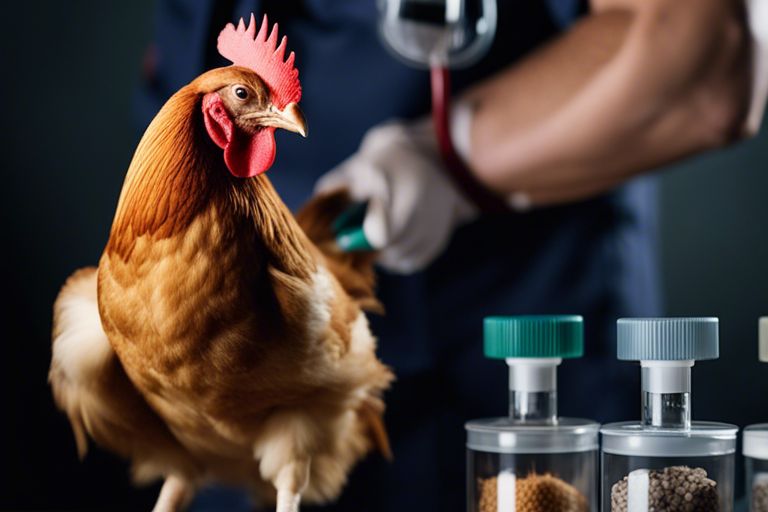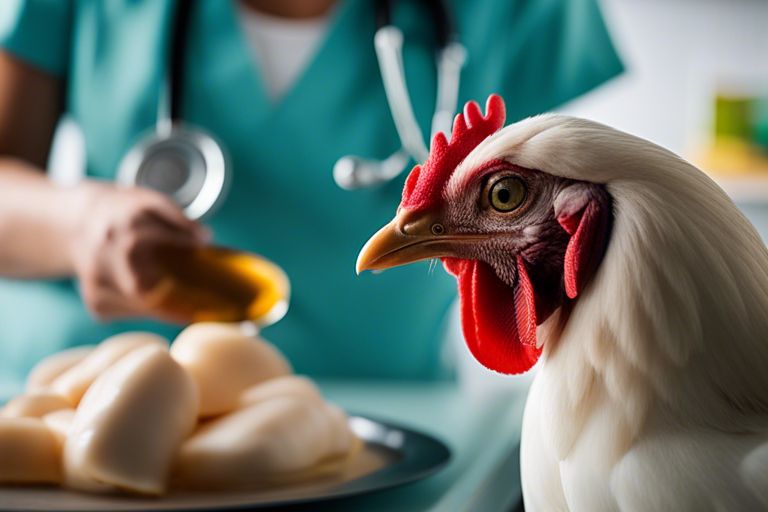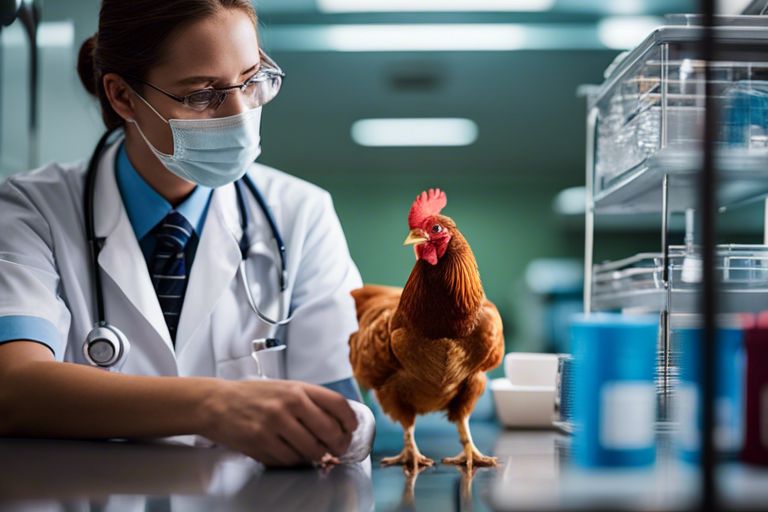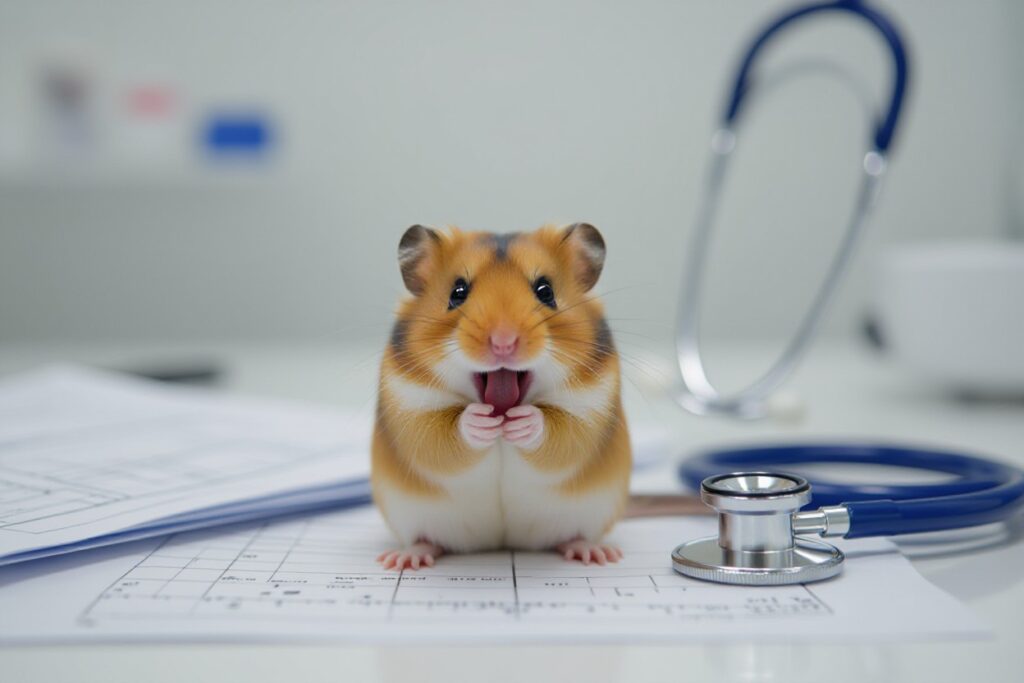There’s nothing more concerning for a poultry owner than realizing their chickens are experiencing respiratory issues. In this blog post, we will walk you through how to recognize the symptoms of respiratory problems in chickens and provide tips on how to effectively treat them. By learning to identify these issues early on and taking appropriate actions, you can help keep your flock healthy and happy.

Identification of Respiratory Problems
Recognizing Symptoms and Behaviors
For poultry owners, being able to recognize the signs of respiratory issues in chickens is crucial. There’s a range of symptoms and behaviors to watch out for when assessing your flock’s health.
Factors Contributing to Respiratory Illnesses
For a better grasp on respiratory illnesses in chickens, it’s necessary to understand the various factors that can contribute to these conditions. Here are some key factors:
- Poor ventilation in the coop
- Presence of mold or ammonia in the coop
- Infectious diseases like Mycoplasma gallisepticum
Symptoms of respiratory illnesses can range from sneezing, coughing, and nasal discharge to more severe signs like difficulty breathing and wheezing. Perceiving these symptoms early on can help in prompt treatment and prevention of further spread among the flock.
Behaviors such as reduced activity, huddling, and decreased appetite may also indicate respiratory issues in chickens. Monitoring your birds regularly and being observant of any changes in their behavior can aid in early detection and effective management of respiratory problems.

How-To Guide for Treating Respiratory Issues
Immediate Steps to Take for Sick Chickens
The moment you notice any respiratory issues in your chickens, it is crucial to separate the sick bird from the rest of the flock to prevent the potential spread of infection. Provide a warm, dry, and well-ventilated area for the sick chicken to rest and recover. Make sure to offer plenty of fresh water and easily digestible food to help boost their immune system.
Long-Term Care and Management
Management of chickens with respiratory issues involves creating an environment that supports their recovery and overall wellbeing. Ensure the coop is clean, dry, and properly ventilated to prevent the recurrence of respiratory infections. Implement a regular cleaning schedule and practice good biosecurity measures to protect the entire flock from further illnesses.
Understanding the common signs and symptoms of respiratory issues in chickens is crucial for prompt diagnosis and treatment. Look out for sneezing, coughing, nasal discharge, watery eyes, and difficulty breathing. Early intervention can significantly improve the chances of successful recovery and minimize the impact on the rest of the flock.

Prevention Tips for Respiratory Health
Now, taking proactive measures to prevent respiratory issues in chickens is imperative for maintaining a healthy flock. Here are some helpful tips to ensure your chickens’ respiratory health:
Best Practices for Coop Environment
If you want to prevent respiratory problems in your chickens, it is crucial to maintain a clean and well-ventilated coop. Proper ventilation helps to reduce the buildup of ammonia and other harmful gases that can irritate your chickens’ respiratory system. Regularly clean bedding, remove damp or soiled bedding promptly, and ensure the coop is free from mold and dust.
Dietary and Lifestyle Factors
Lifestyle choices such as providing your chickens with a balanced diet rich in imperative nutrients can play a significant role in maintaining their respiratory health. Make sure to offer clean and fresh water, as dehydration can lead to respiratory issues. Additionally, avoid overcrowding in the coop, as stress from overcrowding can weaken the immune system and make chickens more susceptible to respiratory infections.
To further support your chickens’ respiratory health, consider adding natural supplements like garlic and probiotics to their diet. These can help boost their immune system and improve overall respiratory function.
- Providing a balanced diet with imperative nutrients is key to supporting respiratory health.
- Regularly cleaning the coop and ensuring proper ventilation can help prevent respiratory issues.
- Avoid overcrowding to reduce stress and boost the immune system.
By taking proactive steps to prevent respiratory issues and maintaining a healthy environment for your chickens, you can help ensure a happy and thriving flock.
Final Words
With these considerations in mind, it is imperative for poultry owners to be able to recognize and treat respiratory issues in chickens promptly. Early detection can prevent the spread of the illness to the rest of the flock and increase the chances of successful treatment. By monitoring for common symptoms such as sneezing, coughing, nasal discharge, and difficulty breathing, you can take swift action to provide appropriate care, such as isolating affected birds, providing supportive care, and consulting a veterinarian for further diagnosis and treatment. Keep in mind, a healthy respiratory system is crucial for the overall well-being of your chickens, so staying vigilant and addressing any issues promptly is key to maintaining a thriving flock.
FAQ
Q: What are common signs of respiratory issues in chickens?
A: Common signs of respiratory issues in chickens include sneezing, coughing, wheezing, nasal discharge, swollen eyes, and difficulty breathing.
Q: How can I recognize if my chicken is struggling to breathe?
A: Signs that your chicken is struggling to breathe include gasping for air, open-mouth breathing, and breathing with an audible wheeze or crackle.
Q: What are some common causes of respiratory issues in chickens?
A: Common causes of respiratory issues in chickens include viral or bacterial infections, dusty or moldy living conditions, poor ventilation, and stress.
Q: How can I treat respiratory issues in my chickens?
A: Treatment for respiratory issues in chickens may involve isolating the sick chicken, providing supportive care such as heat and hydration, administering antibiotics if necessary, and improving overall living conditions.
Q: When should I seek veterinary care for my chicken’s respiratory issues?
A: It is recommended to seek veterinary care if your chicken’s respiratory symptoms are severe, persistent, or worsening despite home treatment, or if multiple chickens in your flock are affected.
Q: How can I prevent respiratory issues in chickens?
A: To prevent respiratory issues in chickens, maintain a clean and well-ventilated coop, avoid overcrowding, quarantine new birds before introducing them to the flock, practice good biosecurity measures, and provide a balanced diet to support a strong immune system.
Q: Can respiratory issues in chickens be contagious to humans?
A: While some respiratory infections in chickens can potentially spread to humans, the risk is generally low. It is still important to practice good hygiene, such as washing hands after handling sick chickens or their respiratory secretions.











